Dar Młodzieży Crosses the Equator!

On Thursday 28th September at 19:10 GMT (22:10 in Poland) Dar Młodzieży crossed the equator. Gdynia Maritime University's sail training ship, captained by Commander Rafał Szymański, commemorated the 100th anniversary of the crossing of the equator by the Lwów. The Maritime School's tall ship was the first vessel flying the Polish flag to sail across the line at zero degrees latitude.
They were pioneers. It was the first such voyage, something amazing, and it's an honour to have had the opportunity to commemorate it", said the captain of the Dar Młodzieży, Rafał Szymański. I'm glad we made it to the equator, and we got here using only our sails", he added.
The progress of the voyage across the equator and the position of Dar Młodzieży was observed by the Rector of Gdynia Maritime University at the ship traffic control centre at Dalian Maritime University. Professor Adam Weintrit was taking part in the International Maritime Education Forum in China alongside the Rectors of other maritime universities from around the world.
Dar Młodzieży crossed zero degrees latitude in the Atlantic Ocean at a longitude of 35 degrees 38 minutes, about 200 miles from the coast of Brazil - the country to which Lwów sailed 100 years ago. After crossing into the southern hemisphere, a traditional equatorial baptism took place on board the ship. The almost 100 2nd-year students on board from the Faculty of Navigation can already call themselves full-fledged seafarers.
"This is a huge step forward for them; they can already call themselves sailors, commented Aleksander Laszka, senior mechanic on Dar Młodzieży. They've had a unique opportunity to experience the tradition of maritime baptism, which is no longer practised on merchant ships as there is simply no time for it", added Laszka.
In keeping with tradition, trainees had to demonstrate their knowledge and physical fitness during various tests to prove that they were true sailors.
In addition to Neptune, Proserpine, Triton, and devils, there were also astrologers, whose task was to confirm the crossing of the equator, and a barber equipped with sharp razor blades. Following the tests, Neptune presented trainees with equatorial baptism certificates, including their new sailing names.
After crossing the equator, Dar Młodzieży set a course for Horta, a small port in the Azores. The return of the "White Frigate" to Gdynia is scheduled to take place on 11th November, during Independence Day.
A Legendary Voyage
The ship sailed a course similar to the historic voyage of Lwów which one hundred years earlier completed the first transatlantic voyage in the history of the white and red flag.
The Lwów's destination was Brazil - home to a large community of Polish emigrates. The ship left Gdansk on 23rd May 1923, crossing the equator on 13th August and docking in Rio de Janeiro on 7th September, before visiting the ports in Santos and Paranagua. The voyage was to act as the first bridge between the reborn Poland and the Polish emigrate community in Brazil, where the ship and its crew were met with an enthusiastic and moving welcome.
The journey itself has become legendary. Just the mention of the some of those on board for the voyage gives an indication of its significance in the maritime history of Poland: Antoni Garnuszewski - director of the Maritime School in Tczew; Tadeusz Ziółkowski - captain of Lwów (head of the Gdansk Maritime Office, captain of the Polish sailing Olympic team in 1936, murdered in Stutthof); navigation officer and head of science, Captain Mamert Stankiewicz (the author of the famous maritime stories book "Znaczy Captain" who later captained Polish transatlantic ships and died on M/S Piłsudski); senior officer Konstanty Maciejewicz (later commander of Lwów and Dar Pomorza); radiotelegrapher Alojza Kwiatkowski (captained Dar Pomorza during the war); and Petty Officer Jan Kaleta. Among the students taking part in the voyage were also well-known figures, such as Stanisław Kosko (the last pre-war director of the State Maritime School who died in September 1939); Tadeusz Meissner; and Jan Ćwikliński who all went on to become captains of our fleet, as well as many others.























































